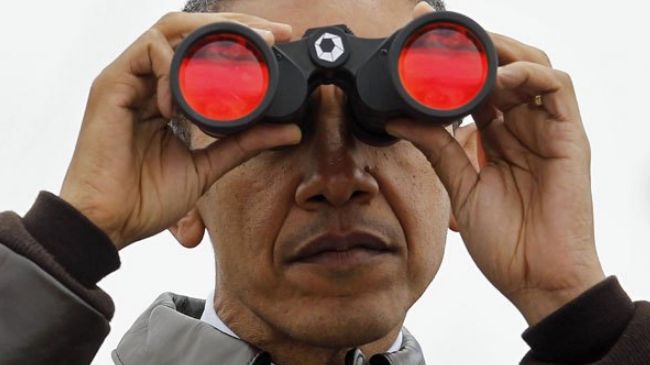US caught in self-deception web: Academic


The United States is caught in a web of self-deception in its futile efforts to keep a lid on its declining power, an academic writes for Press TV.
“The US government is caught in a web of self-deception if it believes that its declining global influence has gone unnoticed among the world’s rising powers,” Mohammad Marandi, Professor of Tehran University, wrote for the Press TV website.
He said US President Barack Obama is facing myriad hurdles in North Africa, West Asia and in Ukraine.
“Since 2001, Washington’s arrogant zero-sum mentality has produced one strategic failure after another,” wrote Marandi.
He added that the US is being overpowered by China’s “rapidly rising” economy in Asia, citing a 2012 report which predicted that “by 2050 the US will be the only Western power among the top five global economies, with an economy much smaller than China’s.”
“In addition, the World Bank predicts that the US dollar will lose its current global dominance in roughly a decade,” wrote Marandi.
He said the US is also close to losing its allies for fear of being the next target by Washington.
“With threats now being made against the Russian Federation, alarm bells have begun ringing, as powerful countries see themselves as potential future targets,” he wrote.
However, Marandi said, the US and its European allies purposefully neglect realities that “rising non-Western powers are playing ever more prominent roles on the global stage.”
“Western elites remain stuck in a time warp, wherein the United States and its European partners are the imperial masters of all they survey,” he wrote.







